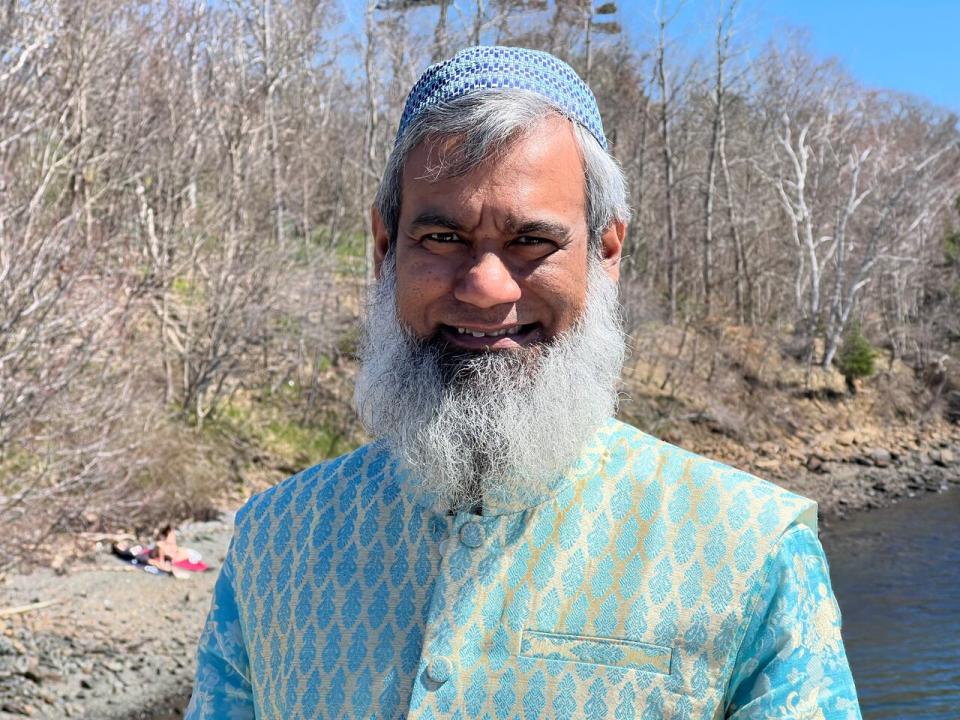Without extended family support in N.S., newcomers say adjustment can be overwhelming

Raising two children without the support of her extended family almost overwhelmed Alva Bourque, who migrated from the Philippines in 2008.
She often sobbed on the kitchen floor, wanting to go back home.
"Extended family is very important in raising children because it takes a village to raise children and I do not have my village right now," she said.
Newcomers to Canada from cultures where extended and multi-generational families are the norm find the loss of family support to be a major challenge. They say it adds to the stress of adjusting to a new society.
Bourque met her husband, Robert, an Acadian, in 2011. They were married in 2014. Her husband's job requires him to be away from home more than half the time.
She shared a room with her grandmother in the Philippines until she moved to Nova Scotia to continue her education at Mount Saint Vincent University.
Sharing space with extended family and relying on extended family for support is an integral part of Filipino culture, she said.
Story not unique
Foroogh Mohammadi, an immigrant from Iran who is an assistant professor of sociology at Acadia University, is researching the experiences of Iranian immigrants in Atlantic Canada.

Foroogh Mohammadi is an immigrant from Iran who is an assistant professor of sociology at Acadia University. (Memorial University)
She said many people take family support and a sense of belonging for granted and only become aware of it when they lose it.
"You had the support for child care of your parents, your siblings, your uncles, aunts ... you have the emotional support of these people especially during difficult times," she said.
According to Mohammadi, child care provided by family is not only free but also allows for language skills and culture to be passed down.
The importance of family support also resonates with Golam Talukder, the chairperson of the Bangladesh Community Association of Nova Scotia. He immigrated to Canada in 2008.
Talukder said he and his wife were the second Bangladeshi family living in his area of Dartmouth. Once they settled, he decided to work on building a community to help make up for the loss of family connections.
"Back home ... we have our cousins, our grandparents, uncles, aunts and we all come together," Talukder said.
"We have meal together, we play together and if you have any other challenges, for example, the arrival of a new baby, it is a communal affair.... I'm missing that helping hand in Canada."

Golam Talukder is the chairperson of the Bangladesh Community Association of Nova Scotia. (Vernon Ramesar/CBC)
Talukder said messaging apps make staying in touch with family in Bangladesh easier, but it is not the same as being together in person.
The ease of communication and his frequent conversations with family have allowed his daughter to stay in touch with her culture to some extent, he said.
Some leave N.S. for more support
Gina Moynan, manager of family and specialized settlement services at the Immigrant Services Association of Nova Scotia, said newcomers may experience a "bereavement phase" over the loss of extended family support.
She said the degree to which people are affected can vary. It could depend on whether they migrated because they are refugees or for economic reasons.
Moynan said some people choose to move back home or to other provinces where they have family or community connections because of the need for support.
For her part, Bourque is grateful that her family in the Philippines has been able to visit at times when she is in most need of help.
She said when her first child was born her father came to help out. Her mother and brother have also visited.
"That's what we call Bayanihan spirit — Filipino people who would help someone if they are in need," Bourque said.
MORE TOP STORIES

